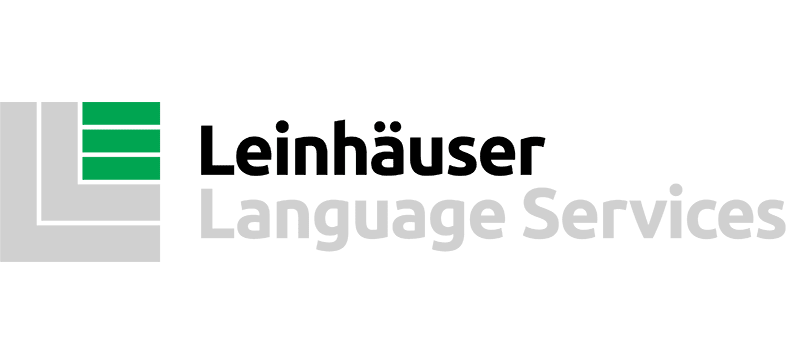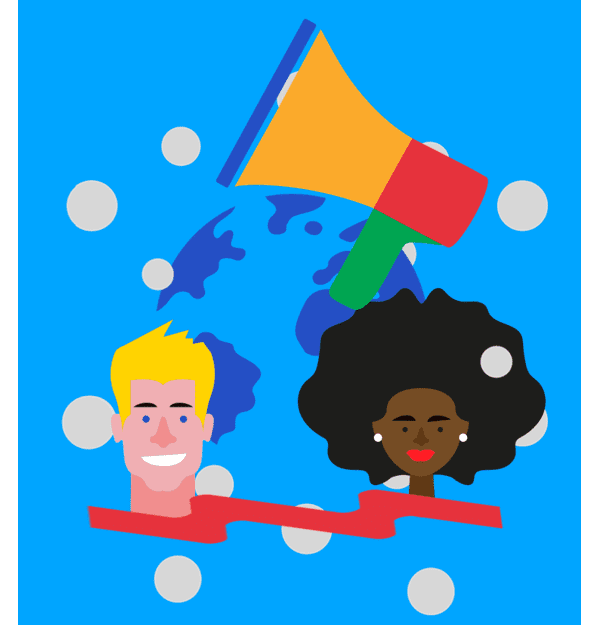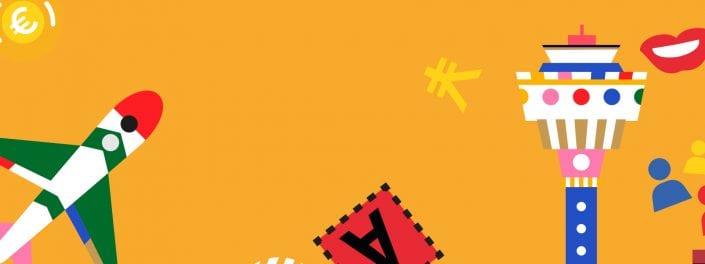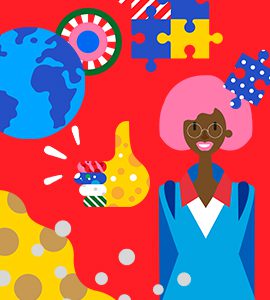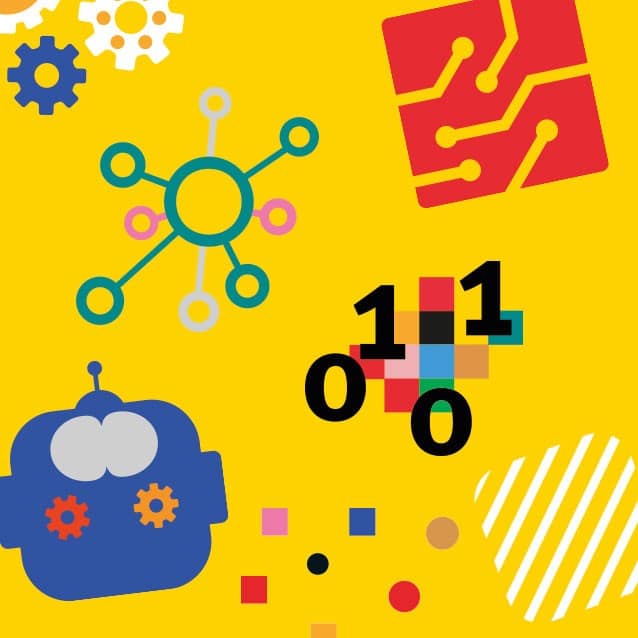So when I came across the announcement in the local paper looking for volunteers to teach German to refugees who had just arrived in the village, it seemed to come right on cue.
The first meeting with the new arrivals is organised really quickly. The registration forms for the language course are already laid out on the table, as are the text books from the course provider, and the tables and chairs are waiting for us in the primary school library.
First to arrive are a young couple with a baby and a mother with two primary-school age children from Albania. It’s not too difficult to communicate; with English and a few scraps of Italian we soon find ourselves chatting away. A little later, the rest of the group arrives – all young men from Syria. Some of them speak good English but the majority don’t appear to understand me at all. When I’m handing out the registration forms I am met with some very friendly but also very blank expressions. With the help of the Syrians who can speak English, I explain to them what information they need to provide. All the completed forms are then returned to me in beautifully neat handwriting but there’s one slight problem – everything is in Arabic.
So before the actual German course can begin, most of the refugees must first learn the Roman alphabet. Fortunately, the volunteer running the parallel group to mine is a retired primary school teacher and can take over teaching the alphabet while I get started with the German lessons for the Albanians and Syrians who can already speak and write English.
The first few chapters are all about greetings, “How are you?” and so forth, which helps us to get to know each other. We discover similarities we wouldn’t have expected but at the same time differences that aren’t so readily overcome. What strikes me from the outset is how polite the Syrian men are; they thank me every time I explain something, hold doors open and carry my bag to the car for me.
What proves considerably more challenging is bridging the gap between the residents and the refugees. One morning when I’m taking my two older children to school their teacher waves me over. She wants to know whether it’s true that I’m giving German lessons to the “refugees”. I confirm that I am and she tells me that she lives right next door to the refugee hostel and hasn’t been able to sleep for days because of the deafening noise coming from their garden all night long. She asks me whether I could explain to them about being quiet at night. So after the next lesson I ask them what it’s all about and the answer is very simple: the Syrians are celebrating Ramadan. They tell me it’s common practice to gather together in a group, also outdoors. I’d rather not have to explain this to the primary school teacher so I politely ask the Syrian group to celebrate indoors instead. After the summer vacation, the teacher tells me that it’s been “pretty quiet” the last few weeks – a partial success in my eyes.
It has to be said that it’s easier for Albanian refugees to integrate than those from the Arab world. It isn’t long before the young Albanian father starts training with the local football team, is welcomed with open arms and is soon in the first team squad. Another thing that helps here is the generous gesture from the German Football Association, which sponsors every refugee the club takes. He scores the winning goal and his credentials are further boosted by his ability to knock back a drink, something his teammates highly approve of. That’s integration for you …
It’s the start of the new school year and three months have passed. The classroom we have been using is no longer available so I hold the lessons in the refugee hostel. This more informal teaching space also breaks down personal barriers and at the end of the lessons, I translate letters from the authorities, organise doctors’ appointments and arrange supplies of baby equipment.
We’ve now reached the “My Family” chapter in the course book and I learn that a large number of the young Syrian men have had to leave their families behind. They tell me there was a desperate rush to leave the country before they were forced to serve in the army. Plus the money they had managed to save would not have been enough to cover the journey for the entire family.
Nour, a 19-year-old Syrian girl, also fled the country without her mother and six siblings. She tells me her father was the only one to travel with her since the money they had to pay the trafficker wasn’t enough for all the family.
The refugees have now been here long enough that they are entitled to work in Germany. However, this is only in a theoretical sense as it is virtually impossible to find a job without any knowledge of German, something we hear time and again from the Employment Agency. To tackle this, we try establishing contacts with the working world through unpaid internships. So far we have had success in finding placements for a Syrian pastry chef, two plumbers and a chemist. Three young people who had to give up studying in Syria are now looking for interim courses until their German is good enough to resume their studies.
At the end of September, I receive an invitation from the Albanian couple to their baby daughter’s christening; she’s only six weeks younger than my daughter. When I arrive at the church, I am amazed to see almost all of the Syrians from the group, all of whom are Muslim, next to the Albanians following proceedings intently. This makes me so happy because there is often tension between the Albanians and Syrians living together in the hostel – it turns out it’s not just the press who distinguish between economic and “genuine” refugees.
Now that I know which cities in Syria my students come from, I start following the news reports from these areas with particular interest. Nour’s family live in Aleppo where the Isis fighters are gaining more and more ground. The situation is becoming much too dangerous to sit tight and wait for an organised family reunion and her mother has to set out on the road with six children, the youngest of whom is three years old. Three weeks later, I receive a message from Nour during the night: “My family now in Austria.” In the meantime, Nour and her father have been granted asylum and they have to leave the hostel in a matter of weeks. The family have decided they would like to settle somewhere near Regensburg.
At the end of October, I receive a call from the adult education centre to say that they are organising language courses for refugees in our region. According to the recently adopted amendments to the asylum law, refugees are now entitled to language lessons as part of the asylum procedure. We are told that our voluntary class will now be an intensive course with 20 hours per week. My students were delighted, even after I told them class would begin at 8 a.m. each day! The course will start next month and last 8 weeks – a first step towards preparing the refugees for their future in Germany.
From March next year, Leinhäuser Language Services will have lots of exciting projects lined up for me again! I’m hoping I will still have time to teach once I’m back at work. In any case, I would love to stay in touch with my current students, some of whom I have grown extremely fond of.
